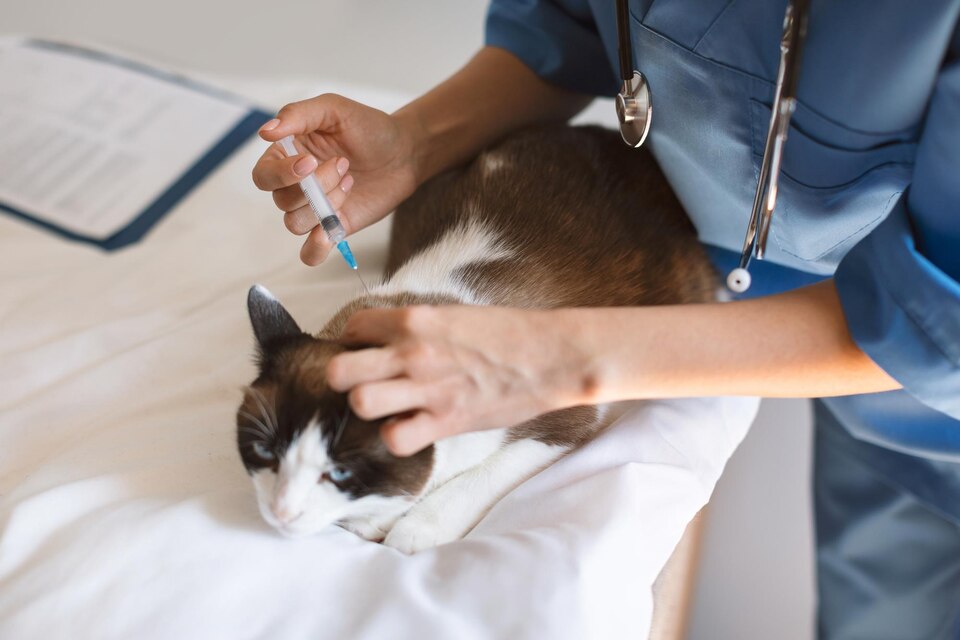Views: 5

Table of Contents
As a marketing manager, I understand the importance of providing valuable and informative content for our target audience. Cat owners need to be aware of common health issues that can affect their feline friends to ensure they receive the best possible care. In this article, we will discuss the top 5 cat health issues every owner should know, including their symptoms, causes, and treatment options.
1. Feline Lower Urinary Tract Disease (FLUTD)
What is FLUTD?
Feline Lower Urinary Tract Disease (FLUTD) is a common health issue that affects the bladder and urethra of cats. It can be caused by various factors, including urinary stones, bacterial infections, and inflammation. FLUTD can be painful and, if left untreated, can lead to life-threatening complications.
Symptoms of FLUTD
- Frequent attempts to urinate
- Straining or crying while urinating
- Blood in the urine
- Urinating outside the litter box
- Licking the genital area excessively
Causes and Treatment
The treatment for FLUTD depends on the underlying cause. For urinary stones, a change in diet or surgical removal may be necessary. Bacterial infections can be treated with antibiotics, while inflammation may require anti-inflammatory medications. It is essential to consult with your veterinarian to determine the appropriate treatment for your cat.
2. Dental Disease
What is Dental Disease?
Dental disease is a common health issue in cats, affecting their teeth and gums. It can lead to pain, tooth loss, and infections that can spread to other parts of the body. Regular dental care is crucial to prevent dental disease and maintain your cat’s overall health.
Symptoms of Dental Disease
- Bad breath
- Red, swollen, or bleeding gums
- Difficulty eating or chewing
- Drooling
- Tooth loss
Causes and Treatment
Dental disease is primarily caused by the buildup of plaque and tartar on your cat’s teeth. Regular dental cleanings and check-ups with your veterinarian can help prevent dental disease. Additionally, providing your cat with dental chews, toys, and a balanced diet can help maintain their oral health.
3. Kidney Disease
What is Kidney Disease?
Kidney disease is a common health issue in cats, particularly in older felines. The kidneys play a vital role in filtering waste products from the blood and maintaining proper hydration. When the kidneys are not functioning correctly, waste products can build up in the body, leading to various health problems.
Symptoms of Kidney Disease
- Increased thirst and urination
- Weight loss
- Loss of appetite
- Vomiting
- Lethargy
Causes and Treatment
Kidney disease can be caused by various factors, including age, genetics, infections, and exposure to toxins. Treatment for kidney disease depends on the severity and underlying cause. In some cases, dietary changes, medications, and fluid therapy may be necessary to manage the condition. Regular check-ups with your veterinarian can help detect kidney disease early and ensure your cat receives appropriate care.
4. Diabetes
What is Diabetes?
Diabetes is a chronic health issue that affects a cat’s ability to produce or use insulin, a hormone that regulates blood sugar levels. When blood sugar levels are not properly controlled, it can lead to various health problems and complications.
Symptoms of Diabetes
- Increased thirst and urination
- Weight loss
- Increased appetite
- Lethargy
- Weakness in the hind legs
Causes and Treatment
Diabetes can be caused by various factors, including genetics, obesity, and certain medications. Treatment for diabetes typically involves insulin injections, dietary changes, and regular monitoring of blood sugar levels. With proper management, cats with diabetes can lead healthy, happy lives.
5. Obesity
What is Obesity?
Obesity is a common health issue in cats, characterized by an excessive accumulation of body fat. It can lead to various health problems, including diabetes, heart disease, and joint issues. Maintaining a healthy weight is crucial for your cat’s overall well-being.
Symptoms of Obesity
- Excess body fat
- Difficulty grooming
- Lethargy
- Shortness of breath
- Reduced mobility
Causes and Treatment
Obesity is primarily caused by an imbalance between calorie intake and energy expenditure. Overfeeding, lack of exercise, and certain medical conditions can contribute to obesity in cats. Treatment for obesity involves a combination of dietary changes, increased exercise, and regular monitoring of your cat’s weight. Consult with your veterinarian to develop a weight management plan tailored to your cat’s needs.
conclusion: Cat Health Issues
In conclusion, being aware of these top 5 cat health issues can help you better care for your feline friend and ensure they lead a healthy, happy life. Regular check-ups with your veterinarian, a balanced diet, and proper exercise are essential for maintaining your cat’s overall well-being. By staying informed and proactive, you can help prevent these common health issues and provide the best possible care for your cat.
FAQs
What is the ideal diet to prevent obesity in cats?
A balanced diet that includes high-quality cat food in appropriate portions is crucial. Consult your veterinarian to determine the specific dietary needs of your cat based on factors like age, weight, and activity level.
Can I use over-the-counter hairball remedies for my cat?
While over-the-counter remedies can help, it’s essential to consult your veterinarian before administering any medication to ensure it’s suitable for your cat’s health.
How can I encourage my cat to stay hydrated and prevent kidney issues?
Ensure your cat has access to fresh, clean water at all times. Wet cat food can also contribute to their overall water intake. Regular veterinary check-ups will monitor kidney function.
What vaccinations are essential to prevent respiratory infections in cats?
Core vaccinations, including those for feline herpes virus and calicivirus, are crucial in preventing respiratory infections. Consult your veterinarian to create a vaccination schedule tailored to your cat’s needs.
